Luxury rug brand needed premium lifestyle visuals across 5 markets but couldn't afford studio photography. We engineered a systematic AI workflow that delivered 267% more content at 85% lower cost while outperforming traditional photography in engagement.
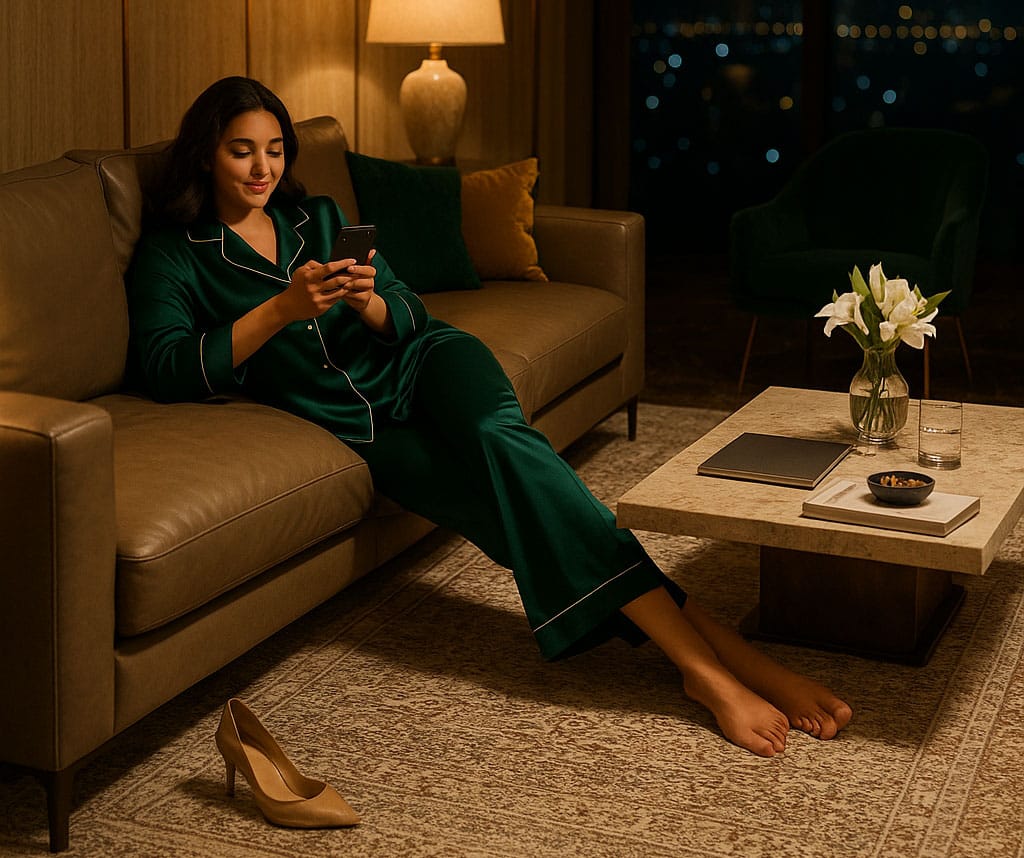
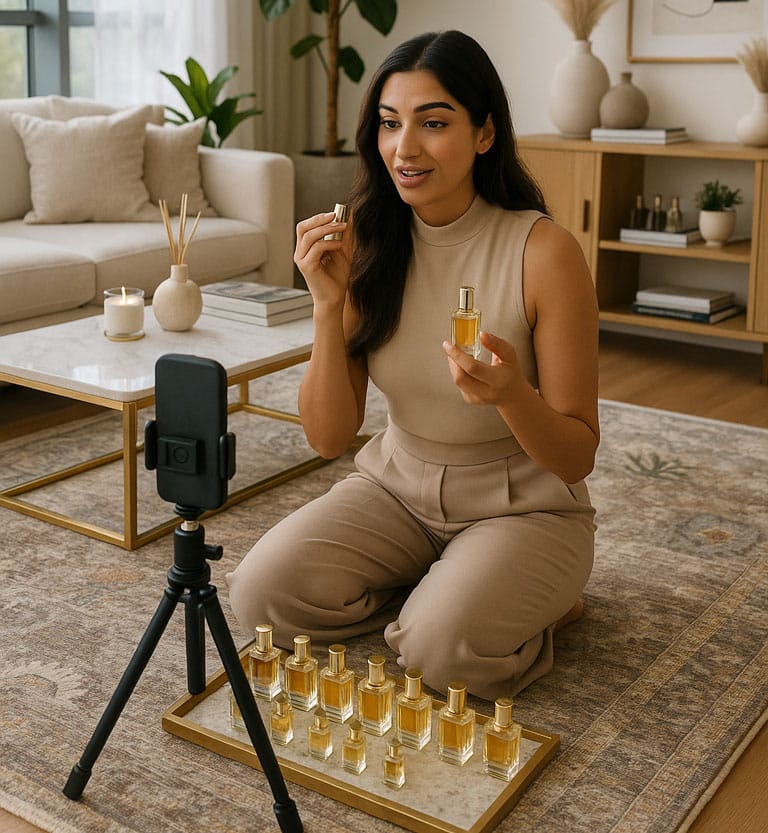

Traditional lifestyle photography for premium home goods required massive studio investments, elaborate staging, and multi-market cultural adaptation—costs that made scalable content creation nearly impossible. When this luxury rug brand partnered with us, they needed gallery-quality lifestyle visuals across five distinct markets without the traditional production overhead.
Our systematic AI engineering approach transformed unreliable DALL·E outputs into a repeatable content engine, delivering culturally-specific premium visuals that outperformed traditional studio photography in engagement while reducing production costs by 85%. We didn’t just use AI—we reverse-engineered its limitations into competitive advantages.
267%
Content Production Volume Increase
43%
Higher Engagement vs Studio Photography
Premium lifestyle content was bottlenecked by traditional production constraints. Studio shoots required location scouting, talent casting, prop styling, and cultural consultants for each market—Pakistan, UAE, KSA, GCC, and Southeast Asia. Costs escalated exponentially with market expansion.
Early AI attempts failed spectacularly. Standard prompting produced warped rugs, uncanny valley faces, and showroom-sterile environments that screamed “artificial.” Engagement remained flat because audiences immediately recognized the generic AI aesthetic that plagued the category.
Cultural authenticity was impossible to scale. Each market demanded specific interior styles, clothing choices, and lifestyle contexts that traditional AI workflows couldn’t differentiate or maintain consistently across content batches.
The fundamental question: Could we force an AI system designed for general image generation to produce market-specific, premium lifestyle content that audiences would accept as authentic?
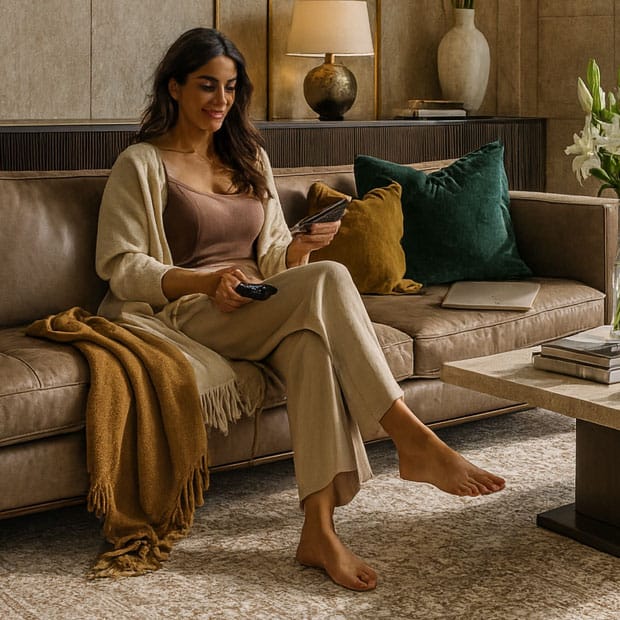
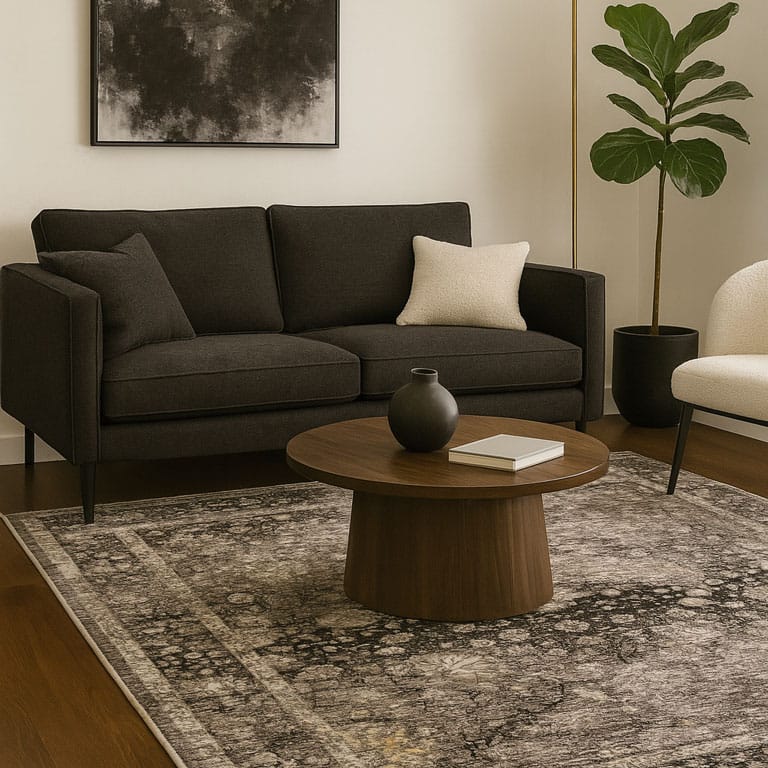
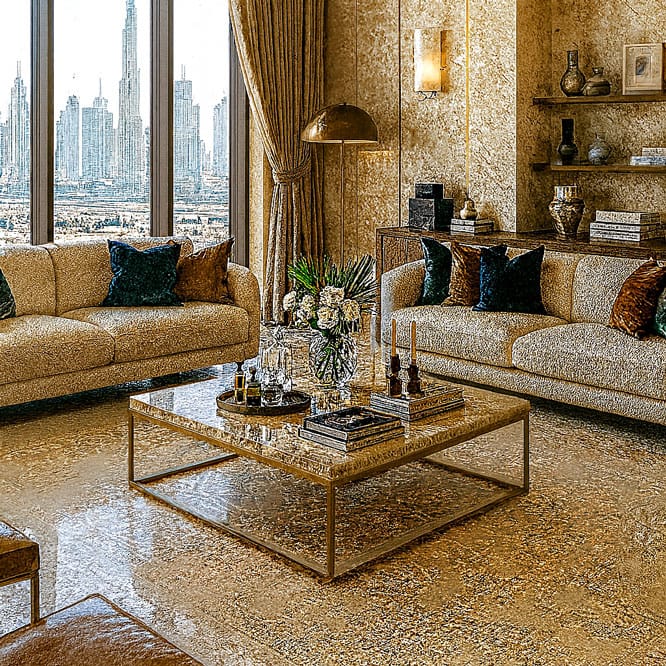
We treated the challenge as a system-engineering problem, not a creative one.
Rug fixed at 5×8 ft, centered 65–70 % of frame. Camera ≈ 2.2 m, 28–30 mm lens. Neutral lighting with warm accents. Only one imperfection allowed per scene.
Every idea mapped through an input structure:
Title → Market → Scene → Room → Lighting → Camera → Activity → Style → Negatives.
This ensured consistency while allowing cultural flexibility.
Pakistan: carved wood, brass tones.
UAE / GCC: marble minimalism, gold accents.
KSA: modest family orientation.
SE Asia: tropical modern, natural materials.
Added “lived-in” imperfections—kicked-off heels, draped throws, scattered toys—that triggered relatability and human realism.
Built modular prompt libraries, LUT presets, and reusable lighting ratios to generate exponential content from limited inputs.
The system delivered tangible, repeatable gains:
267 % increase in usable lifestyle content
43 % higher engagement than professional studio photography
85 % cost reduction in production
60 + culturally specific visuals across five markets
Zero rejected outputs after Phase 5 optimization
Audiences treated AI-generated scenes as real interiors. Comments focused on décor and design, not generation. Campaign turnaround dropped from weeks to days, transforming content creation from a bottleneck into an always-on engine.
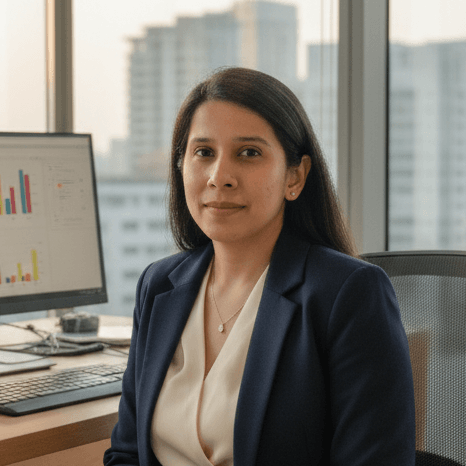
Omar just handles things. I don't have to follow up, don't have to check in—he figures it out and gets it done. With him, I can actually focus on running my business instead of babysitting marketing.
Book a call with our team and we'll show you the roadmap to lift your brand and digital revenue.
Book a Call